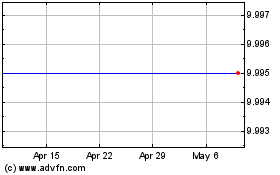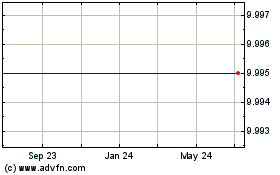College Investors Bank On Gainful Employment Rule Easing
March 24 2010 - 12:17PM
Dow Jones News
Stocks of for-profit college operators have soared in the past
two months as concerns about the federal government implementing
harsh regulations on the sector begin to ebb.
Whether that sense of relief is merited, however, is up for
debate.
Recent comments from members of Congress, and even from the
Department of Education itself, are giving investors hope that the
government may soften its proposal to penalize schools whose
students graduate with large loans and low-paying jobs. The issue
comes under the guise of "gainful employment," which fundamentally
questions how well schools prepare their students to get jobs that
can cover their educational debt.
The stocks of companies such as Bridgepoint Education Inc.
(BPI), Career Education Corp. (CECO) and Corinthian Colleges Inc.
(COCO) initially dipped after the proposal was announced in late
January. It recommended that programs whose graduates have a
debt-to-income ratio above 8%, or who don't meet certain other
criteria, lose access to Title IV federal financial aid - the main
revenue source for the for-profit schools. Opponents say the rule
could force schools to lower their prices.
The schools' stocks started rising in mid-February as
short-sellers, believing no more negative news would come for
months, started covering their positions. The Education Department
likely will release an official proposal in June, open for public
comment, and a final rule in November. Any changes won't go into
effect until July 2011.
Shares have been on a tear since. Bridgepoint is up 63.8% since
the rule was proposed, while Career Education has gained 42.3% and
Corinthian is up 41.1%. American Public Education Inc. (APEI),
Grand Canyon Education Inc. (LOPE) and others have also outpaced
the market. The Russell 2000 Index is up 12.1% in that time.
Some saw a boost when Education Secretary Arne Duncan testified
in front of the House Education and Labor Committee March 3 that
the department is "by no means wedded to any one direction" on the
rule. "We don't want to be overly heavy-handed," he said.
Four committee members, including two Democrats, expressed
concerns about the proposal during the question-and-answer
period.
On March 11, the Congressional Black Caucus circulated a letter
for members to sign and send to Duncan noting their distaste for
the rule.
But congressional disappointment might not have much impact.
"While certainly a positive step, a letter is only a letter,"
said Ariel Sokol, an analyst with Wedbush Securities, regarding the
Congressional Black Caucus's missive. "This is not a legislative
process," he added, as Congress ultimately has no say in what rule
the department adopts.
Congress does have a say on the upcoming reauthorization of the
Elementary and Secondary Education Act, though, which some believe
could put Duncan in a tight-enough spot to make concessions to
ensure passage of that bill.
"The department easing up would be a small price to pay to
accommodate everyone," said Trace Urdan, a research analyst and
managing director at Signal Hill Capital Group.
Harris Miller, head of the Career College Association, an
industry trade group, says he has had talks with the department
about the gainful-employment language. "I know from various
conversations that the Department is increasingly aware of these
concerns," he wrote in an email. "But whether this increased
attention will divert them from their path remains to be seen."
Jeffrey M. Silber, managing director at BMO Capital Markets,
agrees. He wrote in a note to investors Wednesday, "We believe
nobody outside of the Department of Education has true insight into
how the language has changed." He expects that the initial proposal
will be watered down "a bit," but some type of debt ceiling will
still be implemented.
An Education Department official said the office is working on
the language and couldn't comment further.
Even if the ultimate rule is softened, some fear the schools
most affected - those whose students default on their debt or who
graduate into low-paying jobs - may not disclose the potential
impact on their bottom line early enough. That could force the
industry into another cloud of uncertainty like the one under which
it hovered for much of last year as investors waited for the
government to introduce the list of regulations it would seek to
revise in the first place.
"Investors would be ill-informed to think that we're out of the
woods, by a long shot," Sokol said.
- By Melissa Korn, Dow Jones Newswires; 212-416-2271;
melissa.korn@dowjones.com
Apollo Education Group, Inc. (NASDAQ:APOL)
Historical Stock Chart
From Dec 2024 to Jan 2025

Apollo Education Group, Inc. (NASDAQ:APOL)
Historical Stock Chart
From Jan 2024 to Jan 2025
